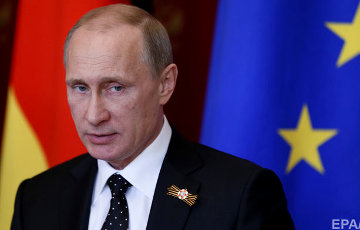Spanish prosecutors accuse Putin allies of aiding Russian mafia in Spain
- 1.07.2015, 13:42
- 2,475

Some of Vladimir Putin’s closest allies, including the chairman of OAO Gazprom, a deputy premier and two former ministers, helped one of Russia’s largest criminal groups operate out of Spain for more than a decade, prosecutors in Madrid say.
Members of St. Petersburg's Tambov crime syndicate moved into Spain in 1996, when Putin was deputy mayor of the former czarist capital, to launder proceeds from their illicit activities, Juan Carrau and Jose Grinda wrote in a petition to the Central Court on May 29, a copy of which was obtained by Bloomberg News, Censor.NET reports.
The 488-page complaint, the product of a decade of investigations into the spread of Russian organized crime during the Putin era, portrays links between the criminal enterprise and top law-enforcement officials and policy makers in Moscow. The petition, based on thousands of wiretaps, bank transfers and property transactions, is a formal request to charge 27 people with money laundering, fraud and other crimes. Approval by a judge would clear the way for a trial, but Spain doesn't try people in absentia.
The only Russian official facing possible charges is Vladislav Reznik, a member of Putin's ruling United Russia party and the deputy head of the finance committee in the lower house of parliament. The complaint, earlier reported by Spain's El Mundo and ABC newspapers, says Reznik helped the alleged leader of the enterprise, Gennady Petrov, get his associates appointed to key posts in Russia in exchange for assets in Spain. Prosecutors are seeking to confiscate a property they say Reznik owns on the resort island of Majorca.
"The criminal organization headed by Petrov managed to achieve a clear penetration of the state structures in his country, not only with the lawmaker Reznik but with several ministers," the prosecutors say in the petition.
Putin himself is mentioned by name three times in the document, including in a partial transcript of a call between two alleged Tambov operatives in 2007. The men are discussing an issue with a hotel in the Alicante region and one refers to a house that he says Putin owns in nearby Torrevieja.
Petrov used Spain as a base to carry out criminal activities mainly in Russia, including murder, arms trafficking, drug smuggling, extortion and fraud, the prosecutors say, repeating some of the accusations that led to his 2008 arrest. Political and judicial contacts in Russia offered him help, including advice on his personal safety; inside information about business dealings; the threat posed by other criminal groups; planned actions against organized crime; and the amount of influence he needed to exert, they say.
His network in Moscow, according to the document, includes Viktor Zubkov, the chairman of gas exporter Gazprom who was prime minister and first deputy premier from 2007 to 2012, and Zubkov's son-in-law, former Defense Minister Anatoly Serdyukov.
Serdyukov "does business with Petrov" and Zubkov, who worked for Putin in the St. Petersburg government in the early 1990s, "favored Petrov's organization with some political decisions," the prosecutors say, without elaborating. Serdyukov's lawyer, Genrikh Padva, declined to comment and Zubkov didn't respond to a request for comment sent through Gazprom's press service. Neither man is facing indictment.
Other officials mentioned as being "directly related" to Petrov's group include Deputy Prime Minister Dmitry Kozak and Alexander Bastrykin, who runs the powerful Investigative Committee that oversees major criminal inquiries. Bastrykin and Putin both earned their law degrees from Leningrad State University in 1975. Kozak graduated from the same law school a decade later and worked in City Hall at the same time as Putin.
Radio Free Europe/Radio Liberty wrote that it has become something of a cliche to call Vladimir Putin's Russia a "mafia state." But cliche or not, the term actually fits. Not just because the Kremlin and organized crime groups are closely linked. And not just because Moscow uses gangsters as instruments of policy. The term is most apt because the Putin regime actually operates like a crime syndicate. It uses threats, intimidation, and extrajudicial violence to achieve its goals. It has teams of enforcers to harass, harm, and -- if necessary -- kill its enemies. It is even structured like a crime syndicate. It is run by a tight cabal of "made men" who oversee their own crews of capos and underbosses.The made men are led by a godfather-like figure whose main function is to settle disputes among them. The Putin Syndicate has its code and its rituals. It has a team of respectable consiglieres, who, like good little mafia lawyers and accountants, give it a facade of respectability. In this sense, Tom Hagen has nothing on Sergei Lavrov. And its goal is simple. Self-perpetuation and self-enrichment.
But just as La Cosa Nostra adorned itself in age-old Sicilian traditions and the venerable rites of Roman Catholicism (recall the chilling baptism scene from The Godfather), the Putin Syndicate cloaks itself in Russian nationalism and Orthodox Christianity.









